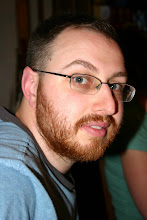I've taken the name for Weyveren from the root of indecision. My concept for Weyveren is of one who was not quite the brightest deity. Uncertain as to what to do or how to act, Creation was well underway before he had a chance to form an opinion of what he actually wanted. As such, he was extremely frustrated and angry at his fellow deities. And although Malithia had used him as an example in her arguments to Fyrste to attempt to undo his first act of Creation, Weyveren didn't feel the same compulsion to be as merciful of Malithia's acts in return.
Effectively, I do kind of see Weyveren as the individual who is a petulant child that wants to pack up their marbles and go home. Except that they're kind of stuck dealing with everyone else. Thus, when Malithia stepped forward to create creatures that would work towards the destruction of Creation, Weyveren followed suit, but made certain to create other creatures that preyed upon even those first creatures. He did manage some creativity with the concepts of parasites and diseases.
However, Weyveren's distaste for Creation is complete. Rather than having mere philosophical differences between the way that he believes it should have been done and what was actually done, and believing in the idea of scrapping it and starting fresh, Weyveren is more like a suicidal depressive cursed with immortality. He feels threatened and embittered towards his fellow deities, who he believes are condescending and sniping, and in turn he wins no awards for maintaining relationships with any of his fellow beings.
Weyveren is a joyless deity who takes delight in absolutely nothing. He is so immersed in his own insecurities that he can see no good or beauty in anyone or anything else, leastwise in the acts of Creation.
At the same time, Weyveren is so afraid of being "left out" that he still impacts himself upon Creation, rather than leaving well enough alone. Thus, while the rest of the deities began to create their mortal races, Weyveren openly stated that it was clearly another failure of an idea, he still took part in the creation of his own.
The word "Algein" translates literally to "to feel pain." And this is truly the result of Weyveren's creation. While Malithia created a race designed to destroy and found within it a thing to love within Creation, Weyveren still took no pleasure in the Creation of his race. In fact, the race itself bears the brunt of Weyveren's disdain for it in its inception.
The Algein are aberrations, one and all. They take a variety of shapes and sizes, reproduce in various ways, and there is very little continuity in their existences. While all are sentient creatures, their intelligences are varied, as well. The only things that are common to all Algein are suffering and hunger. For to be an Algein at all means that one is in constant agony, just in their very existences. Some Algein lack certain bone or muscular structures that cause their bodies to be unable to properly support themselves. Some have extraneous bones that extrude from their flesh and constantly tear at it as they move. Still others are host to a horde of smaller creatures residing within them, threatening to eat away at them from the inside.
Whatever the cause or means may be, Weyveren's utter hatred for his own Creation is apparent within their being. These creatures, though sentient, are full of rage, hunger, and resentment. It is only in the process of feeding that they feel any sort of relief from their pain, and thus do many Algein attempt to feed constantly. Thus is it that the Algein also then act as the means towards Weyveren's plans for the destruction of Creation.
What Weyveren did not account for, and yet actually acts as his own proof that Creation never does what the Creators have expected them to, is that some particularly strong-willed, intelligent, or otherwise persistent Algein have actually found some beauty or pleasure in their own existences. Some of the most philosophical of these creatures feel as if finding a way to find meaning within their pain and backwards purpose gives them a greater sense of their own destinies. Weyveren, in the meanwhile, blames such propensity on Eleuth for touching his creations with his penchance for logical puzzles or other such weirdness.
For the Algein, magic does not come frequently, but it is a blessing for some few of them. The magic of the Algein comes directly from raw emotion. Most prominently amongst these are rage, hatred, and misery, but rarely do some of those particularly philosophical Algein find a means to magical power based upon pity or remorse. Always, however, these magics are impulsive, difficult to control, and are never delicate or subtle. Those Algein who are able to wield magics always bear the potential for a great deal of destruction, but they rarely if ever form into any sort of community with others, for if they did, their emotional states would likely tear their fellows apart, thus renewing their isolation again.
Then again, that sort of continually-renewing isolation is just the sort of ongoing misery that Weyveren designed for his Creation. And if he hadn't long ago cast aside the hope or belief that he could find joy in anything, would have been quite the type of thing that he would relish.
Subscribe to:
Post Comments (Atom)

No comments:
Post a Comment